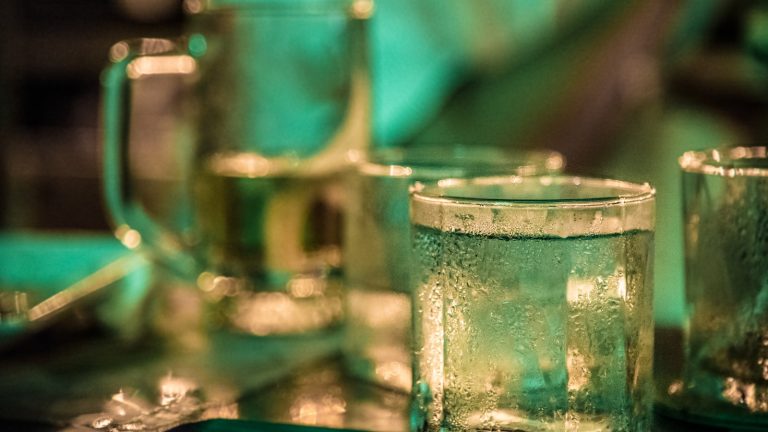Alcohol consumption is a common practice worldwide. However, the effects of alcohol can differ significantly from one person to another based on many factors. One frequently asked question is: how long does it take to get drunk? This comprehensive guide delves into the intricate factors that influence the rate of alcohol absorption and intoxication.
The Quest to Decipher Alcohol Intoxication
The journey to understanding alcohol intoxication begins with the first sip. Alcohol makes its way into your bloodstream as soon as you take that initial sip. The onset of alcohol’s effects can be felt within about 10 minutes. However, the extent of these effects and their visibility can vary greatly from individual to individual.
The Standard Drink: A Fundamental Concept
Before delving further into the specifics, it’s important to understand what constitutes a ‘standard drink’. In the United States, one standard drink contains approximately 0.6 ounces, or 14 grams, of pure alcohol. To put this into perspective, one standard drink translates into:
- 12 ounces of regular beer
- 8 to 9 ounces of malt liquor
- 5 ounces of table wine
- 3 to 4 ounces of fortified wine, like port or sherry
- 1.5 ounces of distilled spirits, hard liquor such as vodka, tequila, or whiskey
Having a standard measure assists in keeping everyone on the same page with the variance in alcohol content across different drinks and brands.
The Importance of Eating Before Drinking
The presence or absence of food in your stomach can significantly impact the rate at which alcohol is absorbed into your bloodstream. When you drink on an empty stomach, alcohol is absorbed faster, leading to quicker and more intense effects.
The majority of alcohol is absorbed through your stomach and small intestines. If you have eaten before you drink, it can delay the time it takes for alcohol to be absorbed, thereby slowing the onset of its effects. As a rule of thumb, it’s advisable to eat at least an hour before consuming alcohol.
Influential Factors in Alcohol Intoxication
The rate at which alcohol takes effect isn’t solely dependent on the number of drinks or whether you’ve eaten beforehand. Several other factors can influence how quickly alcohol takes effect.
Type of Alcoholic Beverage
The type of alcoholic beverage you consume can make a difference in the rate of intoxication. Carbonated drinks such as champagne or whiskey soda enter your system faster, leading to quicker onset of intoxication. On an empty stomach, a drink with 20 to 30 percent alcohol concentration is absorbed the quickest.
Drinking Method
The method of drinking can also impact how quickly you feel the effects of alcohol. If you gulp down a drink, the larger quantity of alcohol will enter your body faster. Conversely, sipping allows the effects to kick in more gradually.
Biological Sex
Biological sex plays a significant role in how alcohol is metabolized. Females generally metabolize alcohol at a different rate than males, even if they weigh the same. This difference can be attributed to several factors:
- Females have less body water to dilute alcohol, resulting in a higher concentration of blood alcohol level
- Females typically have higher body fat, and fat retains alcohol
- Women produce less alcohol dehydrogenase, an enzyme the liver releases to break down alcohol
Body Weight
Your body weight can also influence how quickly alcohol takes effect. The more you weigh, the more space there is for alcohol to spread out. This diffusion across a larger space results in a lower blood alcohol concentration (BAC).
Medications
Certain prescription and over-the-counter medications, herbal supplements, and recreational drugs can have adverse interactions when paired with alcohol. It’s always advisable to consult your doctor or pharmacist before mixing alcohol with any medications.
Menstrual Cycle
Interestingly, the rate at which your body absorbs alcohol changes throughout your menstrual cycle. Alcohol absorption is faster during ovulation and just before your period.
The Duration of Alcohol in Your System
After considering all these factors, the next question is: how long does alcohol stay in your system? The duration depends on the factors discussed above and the quantity of alcohol consumed.
Alcohol is expelled from the bloodstream at a rate of around 3.3 millimoles per hour. Here’s a rough estimate of how long different drinks remain in your system:
- A small shot of liquor: 1 hour
- A pint of beer: 2 hours
- A large glass of wine: 3 hours
Tips For Moderate Drinking
Nobody wants to be the person who went overboard with their drinking. Here are a few best practices to avoid getting too drunk too quickly:
- Eat at least one hour before drinking
- Sip your drinks slowly
- Avoid shots, which you’re likely to down rather than sip
- Don’t drink more than one standard drink per hour
- Alternate between alcohol and nonalcoholic drinks, preferably water
- Limit or avoid carbonated drinks, like champagne, sparkling wine, and cocktails mixed with soda
- Try to stay seated when drinking alcohol, as standing tends to make people drink faster
The Bottom Line: Drink Responsibly
Alcohol kicks in pretty quickly. You’ll typically start feeling the effects within about 10 minutes or so, depending on the strength of your drink and how fast you drink it. Remember, moderation is key. While the occasional glass of wine or beer can be a part of a balanced lifestyle, excessive drinking can lead to serious health problems. So, the next time you’re out with friends or enjoying a quiet night in, keep these tips in mind. Remember, it’s not about how long does it take to get drunk, but rather how you can enjoy yourself responsibly.


0 Comments